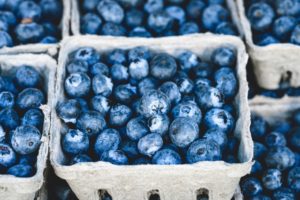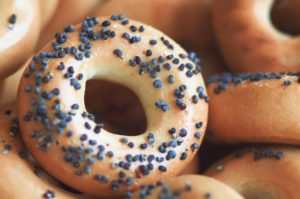Fun Sales Tax Facts Across the States
Reading sales tax legislation and tax code is part of a sales tax pro’s daily routine. Every once and a while you’ll come across a law during taxability research that seems well, a little odd.
When a state develops a new law to bring in additional revenue or creates an exemption for a social benefit, the results can certainly get kooky. For example, Alabama once had a $0.10 per package tax on playing cards for which taxpayers had to purchase playing card tax stamps to affix to decks.
As you ponder what was going through the heads of lawmakers and maybe get mildly annoyed that you must follow and keep track of these quirky rules, hopefully you can chuckle at least a little bit.
Keep reading for a list of amusing state definitions, rules, and procedures that a true sales tax nerd would enjoy.

Good Intentions
In Arkansas, sales of motor vehicles to blind veterans of the U.S. Armed Forces are exempt from Arkansas sales and use tax. The exemption is limited to one new vehicle every two years. While this is a generous gesture engrained in Arkansas tax code, we certainly hope it is family members and friends driving the exempt vehicle.

You Scream, I Scream
Many states have a specific approach to taxing ice cream and ice cream related products.
In Maryland, ice cream, frozen yogurt and other frozen desserts that are sold in containers of less than one pint are taxable. Taxability depends on size. For example, tax will apply to the sale of a single ice cream sandwich but will not apply to a package of a dozen ice cream sandwiches containing more than one pint of ice cream. This is in line with rules related to food for immediate consumption. Apparently a pint is a single serving of ice cream!
It’s no secret that Wisconsin takes dairy seriously. When Wisconsin changed its sales tax laws for food in 2009, several provisions were specific to ice cream related products. Whether or not an ice cream cake or a similar product is taxable depends whether it meets the definition of “prepared food.” In a delicious notice titled, “Sales of Ice Cream Cakes and Similar Items,” the DOR states that generally, mixing ice cream and one or more other food items to form a cake or bar makes the item taxable as a prepared food. The notice lists no fewer than 10 pertinent examples for those selling ice cream related products.

Up, Up and Away
In Kansas, a hot air balloon ride can provide you a sense of adventure without the tax obligation – as long as you don’t remain tethered to the ground.
Amusement admissions are generally taxable in Kansas. In 2010, Kansas Department of Revenue issued a private letter ruling to clarify the sales tax treatment of a specific type of amusement: untethered hot air balloon rides. If you take a hot air balloon ride but the balloon is tethered to the ground, the ride is subject to the amusement tax. If the balloon is not tethered, the ride is considered transportation and is not taxable.

Oh, the Shame!
Every quarter, the California Department of Tax and Fee Administration (CDTFA) is required by law to post a list of the 500 largest delinquent sales and use tax accounts over $100,000. The Top 500 Sales & Use Tax Delinquencies in California list includes business name, address, and balance owed. An interactive map of the top 500 delinquent accounts is also featured. This method has seemingly worked for the state, with millions of dollars recouped from hundreds of delinquent taxpayers.
Please, don’t be shamed into compliance in this way.

What’s Your Specialty?
States that have products or industries that are key to their economies often have specialized tax regimes related to those products/industries.
Maine is the largest producer of wild blueberries in the world and produces 10% of all blueberries in North America. For this reason, the state implemented a Blueberry Tax to conserve and promote the prosperity of the wild blueberry industry and support development activities. Maine levies a tax on wild blueberries processed in the state and all unprocessed blueberries shipped to an out-of-state location at a rate of 1.5 cents per pound.
On the opposite side of the country, Washington is a leading domestic seafood supplier. Washington imposes an enhanced food fish excise tax that commercial fishers may be liable for in addition to B&O tax. “Enhanced food fish” include species of food fish, shellfish, and anadromous game fish caught in Washington territorial and adjacent waters. The tax is measured by the value of the fish when first landed. The more you know!
When it comes to thoroughbred horses, you might get lucky if you breed in Kentucky. All receipts collected from sales and use tax on fees paid for breeding a stallion to a mare are deposited into a fund administered by the Kentucky Horse Racing Commission. From there, 80 percent of the receipts go into the Kentucky Thoroughbred Breeder’s Incentive Fund. When breeders register an unborn foal with the Fund, it allows the breeder of record to win cash awards in races throughout the U.S. and the world. The Fund administered over $14 million in awards in 2018 to breeders for races won! The next time you find yourself at the Kentucky Derby, you’ll have a little insight about the equine-related taxes going on behind the scenes.

Walking the Line: Groceries vs. Prepared Food
Groceries are tax exempt or taxed at a lower rate in the majority of states. However, prepared foods like that pre-made pasta you picked up from the deli counter for lunch are taxable in many states. For certain food items, states draw potentially frustration-inducing lines between when an item is considered groceries and when it’s considered prepared food.
In Massachusetts, baked goods sold in units of six or more for takeout, including any variety of items totaling six or more servings, qualify for the state’s sales tax exemption on food. Is this incentivizing you to eat an entire box of donuts? It may not be guilt free, but it’d be tax free.
New York’s tax on prepared food items was brought to people’s attention when it began affecting a New York favorite: the bagel. Bagels purchased whole or sliced and taken away are not taxed. However, bagels that are toasted or served with a “schmear” like cream cheese cross the line into being prepared food and are subject to tax.

Tax Treat-ment of Sweets
Candies and sweets are a food category that often gets special sales tax treatment across the states. Many states do not extend their grocery exemption to candy and candy-like products.
As a general rule, Indiana taxes candy. However, things get a little sticky when it comes to the taxation of the marshmallow family. Marshmallows are not exempt from tax as they are treated like candy since they are in the form of pieces. Marshmallow crème, on the other hand, is exempt from tax. Similarly, cake decorations are subject to tax (considered candy in piece form) but frosting in containers is not.
States have also designated flour as ingredient that makes a distinction between candy and grocery items. In Illinois, candy has a broad definition in the way sales tax is imposed. However, candy items that contain flour or require refrigeration are not considered candy. If your favorite candy is a Twix bar, score! Twix bars contain flour and are thus not subject to tax. But if your favorite is a Milky Way, you’re out of luck. Flour is not an ingredient in Milky Ways, which makes them taxable. This rule is not so sweet for those with a gluten intolerance.
Rolling with the Quirks
While these quirky rules may seem like a hassle, in many cases they might contribute to keeping sales tax pros in demand. Knowing niche exemptions and understanding the uber-specific distinctions states make in taxability rules can create a lot value for your client or company.
Plus, they are at least a little fun, aren’t they?! Rules like these certainly keep our day to day sales tax work interesting. We’ve added a “Fun Facts” section to each of our state pages where you can find many more interesting sales tax facts. For example, check out Colorado and Iowa.
Our list only skims the surface of odd sales tax laws across the states. What’s the weirdest sales tax rule you’ve come across or had to comply with? We’ve started a thread of comments on LinkedIn with some additional head-scratching sales tax rules – share your quirky rule by adding to the comments! Let’s keep the conversation going!